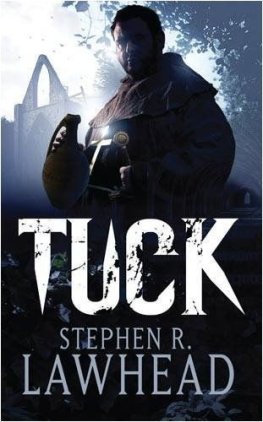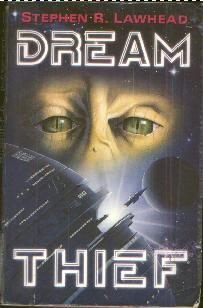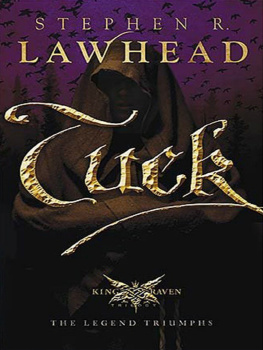Stephen Lawhead - Tuck
Here you can read online Stephen Lawhead - Tuck full text of the book (entire story) in english for free. Download pdf and epub, get meaning, cover and reviews about this ebook. genre: Romance novel. Description of the work, (preface) as well as reviews are available. Best literature library LitArk.com created for fans of good reading and offers a wide selection of genres:
Romance novel
Science fiction
Adventure
Detective
Science
History
Home and family
Prose
Art
Politics
Computer
Non-fiction
Religion
Business
Children
Humor
Choose a favorite category and find really read worthwhile books. Enjoy immersion in the world of imagination, feel the emotions of the characters or learn something new for yourself, make an fascinating discovery.
- Book:Tuck
- Author:
- Genre:
- Rating:5 / 5
- Favourites:Add to favourites
- Your mark:
- 100
- 1
- 2
- 3
- 4
- 5
Tuck: summary, description and annotation
We offer to read an annotation, description, summary or preface (depends on what the author of the book "Tuck" wrote himself). If you haven't found the necessary information about the book — write in the comments, we will try to find it.
Tuck — read online for free the complete book (whole text) full work
Below is the text of the book, divided by pages. System saving the place of the last page read, allows you to conveniently read the book "Tuck" online for free, without having to search again every time where you left off. Put a bookmark, and you can go to the page where you finished reading at any time.
Font size:
Interval:
Bookmark:
Stephen R Lawhead
Tuck
(King Raven 3)
PROLOGUE
Wintan Cestre Saint Swithun's Day
King William stood scratching the back of his hand and watched as another bag of gold was emptied into the ironclad chest: one hundred solid gold byzants that, added to fifty pounds in silver and another fifty in letters of promise to be paid upon collection of his tribute from Normandie, brought the total to five hundred marks. "More money than God," muttered William under his breath. "What do they do with it all?"
"Sire?" asked one of the clerks of the justiciar's office, glancing up from the wax tablet on which he kept a running tally.
"Nothing," grumbled the king. Parting with money always made him itch, and this time there was no relief. In vain, he scratched the other hand. "Are we finished here?"
Having counted the money, the clerks began locking and sealing the strongbox. The king shook his head at the sight of all that gold and silver disappearing from sight. These blasted monks will bleed me dry, he thought. A kingdom was a voracious beast that devoured money and was never, ever satisfied. It took money for soldiers, money for horses and weapons, money for fortresses, money for supplies to feed the troops, and as now, even more money to wipe away the sins of war. The gold and silver in the chest was for the abbey at Wintan Cestre to pay the monks so that his father would not have to spend eternity in purgatory or, worse, frying in hell.
"All is in order, Majesty," said the clerk. "Shall we proceed?"
William gave a curt nod.
Two knights of the king's bodyguard stepped forward, took up the box, and carried it from the room and out into the yard where the monks of Saint Swithun's were already gathered and waiting for the ceremony to begin. The king, a most reluctant participant, followed.
In the yard of the Red Palace-the name given to the king's sprawling lodge outside the city walls-a silken canopy on silver poles had been erected. Beneath the canopy stood Bishop Walkelin with his hands pressed together in an attitude of patient prayer. Behind the bishop stood a monk bearing the gilded cross of their namesake saint, while all around them knelt monks and acolytes chanting psalms and hymns. The king and his attendants-his two favourite earls, a canon, and a bevy of assorted clerks, scribes, courtiers, and officials both sacred and secular-marched out to meet the bishop. The company paused while the king's chair was brought and set up beneath the canopy where Bishop Walkelin knelt.
"In the Holy Name," intoned the bishop when William Rufus had taken his place in the chair, "all blessing and honour be upon you and upon your house and upon your descendants and upon the people of your realm."
"Yes, yes, of course," said William irritably. "Get on with it."
"God save you, Sire," replied Walkelin. "On this Holy Day we have come to receive the Beneficium Ecclesiasticus Sanctus Swithinius as is our right under the Grant of Privilege created and bestowed by your father King William, for the establishment and maintenance of an office of penitence, perpetual prayer, and the pardon of sins."
"So you say," remarked the king.
Bishop Walkelin bowed again, and summoned two of his monks to receive the heavy strongbox from the king's men in what had become an annual event of increasing ceremony in honour of Saint Swithun, on whose day the monks determined to suck the lifeblood from the crown, and William Rufus resented it. But what could he do? The payment was for the prayers of the monks for the remission of sins on the part of William Conqueror, prayers which brought about the much-needed cleansing of his besmirched soul. For each and every man that William had killed in battle, the king could expect to spend a specified amount of time in purgatory: eleven years for a lord or knight, seven years for a man-at-arms, five for a commoner, and one for a serf. By means of some obscure and complicated formula William had never understood, the monks determined a monetary amount which somehow accorded to the number of days a monk spent on his knees praying. As William had been a very great war leader, his purgatorial obligation amounted to well over a thousand years-and that was only counting the fatalities of the landed nobility. No one knew the number of commoners and serfs he had killed, either directly or indirectly, in his lifetime-but the number was thought to be quite high. Still, a wealthy king with dutiful heirs need not actually spend so much time in purgatory-so long as there were monks willing to ease the burden of his debt through prayer. All it took was money.
Thus, the Benefice of Saint Swithun, necessary though it might be, was a burden the Conqueror's son had grown to loathe with a passion. That he himself would have need of this selfsame service was a fact that he could neither deny nor escape. And while he told himself that paying monks to pray souls from hell was a luxury he could ill afford, deep in his heart of hearts he knew only too well that-owing to the debauched life he led-it was also a necessity he could ill afford to neglect much longer.
Even so, paying over good silver for the ongoing service of a passel of mumbling clerics rubbed Rufus raw-especially as that silver became each year more difficult to find. His taxes already crushed the poor and had caused at least two riots and a rebellion by his noblemen. Little wonder, then, that the forever needy king dreaded the annual approach of Saint Swithun's day and the parting with so much of his precious treasury.
The ceremony rumbled on to its conclusion and, following an especially long-winded prayer, adjourned to a feast in honour of the worthy saint. The feast was the sole redeeming feature of the entire day. That it must be spent in the company of churchmen dampened William's enthusiasm somewhat, but did not destroy it altogether. The Red King had surrounded himself with enough of his willing courtiers and sycophants to ensure a rousing good time no matter how many disapproving monks he fed at his table.
This year, the revel reached such a height of dissipation that Bishop Walkelin quailed and excused himself, claiming that he had pressing business that required his attention back at the cathedral. William, forcing himself to be gracious, wished the churchmen well and offered to send a company of soldiers to accompany the monks back to the abbey with their money lest they fall among thieves.
Walkelin agreed to the proposal and, as he bestowed his blessing, leaned close to the king and said, "We must talk one day soon about establishing a benefice of your own, Your Majesty." He paused and then, like the flick of a knife, warned, "Death comes for us all, and none of us knows the day or time. I would be remiss if I did not offer to draw up a grant for you."
"We will discuss that," said William, "when the price is seen to fall rather than forever rise."
"You will have heard it said," replied Walkelin, "that where great sin abounds, great mercy must intercede. The continual observance and maintenance of that intercession is very expensive, my lord king." "So is the keeping of a bishop," answered William tartly. "And bishops have been known to lose their bishoprics." He paused, regarding the cleric over the rim of his cup. "Heaven forbid that should happen. I know I would be heartily sorry to see you go, Walkelin."
"If my lord is displeased with his servant," began the bishop, "he has only to-"
"Something to consider, eh?"
Bishop Walkelin tried to adopt a philosophical air. "I am reminded that your father always-"
"No need to speak of it any more just now," said William smoothly. "Only think about what I have said."
"You may be sure," answered Walkelin. He bowed stiffly and took a slow step backwards. "Your servant, my lord."
Font size:
Interval:
Bookmark:
Similar books «Tuck»
Look at similar books to Tuck. We have selected literature similar in name and meaning in the hope of providing readers with more options to find new, interesting, not yet read works.
Discussion, reviews of the book Tuck and just readers' own opinions. Leave your comments, write what you think about the work, its meaning or the main characters. Specify what exactly you liked and what you didn't like, and why you think so.







